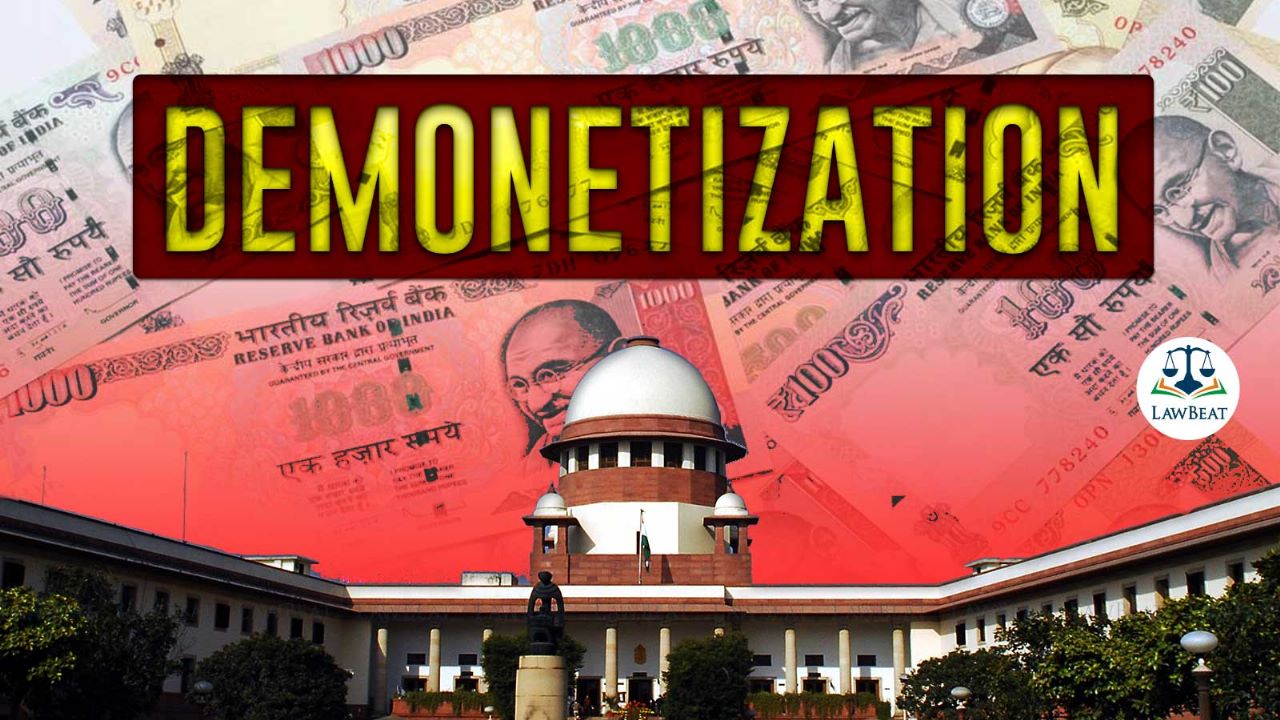RBI and Central Govt cannot be expected to act in two isolated boxes while taking a decision like Demonetization: SC

Supreme Court constitution bench by a 4-1 majority has affirmed the Union government’s demonetization policy. In her dissenting opinion, Justice Nagarathna has held the policy to be unlawful.
The Supreme Court yesterday remarked that in a matter like that of demonetization, it could not be expected that the Reserve Bank of India and the Central Government would act in two isolated boxes.
An element of interaction/consultation in such important matters pertaining to economic and monetary policies cannot be denied to the RBI and the Central Government, the Constitution bench of the Supreme Court added.
These observations have been made by the Top Court while holding that the notification issued by the Central Government announcing the demonetization of currency notes of ₹500 and ₹1000 satisfied the test of proportionality, and thus, the pleas challenging the said decision were liable to be dismissed.
Court has further held that merely because the Central Government had advised the Central Board of the RBI to consider recommending demonetization and that the Central Board, on the advice of the Central Government, had considered the proposal for demonetization and recommended it and, thereafter, the Central Government had taken a decision, could not be a ground to hold that the procedure prescribed under Section 26 of the RBI Act was breached.
"...the record itself reveals that the RBI and the Central Government were in consultation with each other for a period of six months before the impugned notification was issued. The record would also reveal that all the relevant information was shared by both the Central Board as well as the Central Government with each other. As such, it cannot be said that there was no conscious, effective, meaningful and purposeful consultation", the Top Court has further noted.
On the aspect of deliberations, it was found that after detailed deliberations, the Central Board had resolved to recommend withdrawal of legal tender of banknotes in the denomination of Rs.500 and Rs.1000 of existing and any older series in circulation.
"Thereafter, the Deputy Governor, vide communication dated 8th November 2016, informed the Secretary, Department of Economic Affairs, Ministry of Finance, Government of India about the above recommendations of the Central Board. Not only that, but a draft scheme for implementation of the same was also enclosed along with the said recommendations...", the Supreme Court further noted.
Background:
On November 8, 2016, Prime Minister Narendra Modi through a televised address declared that denomination notes of Rs 500 and Rs 1000 would no longer be legal tender.
The pleas challenging the demonetisation decision were filed way back in 2016 and sought quashing of the government’s decision to demonetise Rs 1,000 and Rs 500 currency notes on grounds that it infringed on citizens’ right to life and to trade.
In 2016, the Supreme Court transferred all petitions pending before various High Courts to itself and referred the matter to a 5-judge Constitution Bench.
The matters were not taken up since then however, this year they had been finally listed by Chief Justice of India UU Lalit.
On October 12, a Constitution Bench of the Supreme Court agreed to hear the challenge to demonetisation and the implementation of the same in November 2016. Justice Nazeer thus directed the Centre and RBI to file comprehensive affidavits in the matter.
The five-judge bench, comprising Justices S Abdul Nazeer, BR Gavai, AS Bopanna, V Ramasubramanian, and BV Nagarathna, earlier questioned if the present matter had become academic or if it should be heard.
Case Title: VIVEK NARAYAN SHARMA vs. UNION OF INDIA
